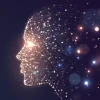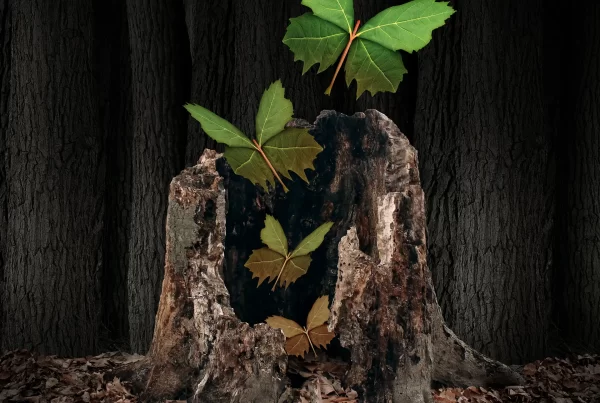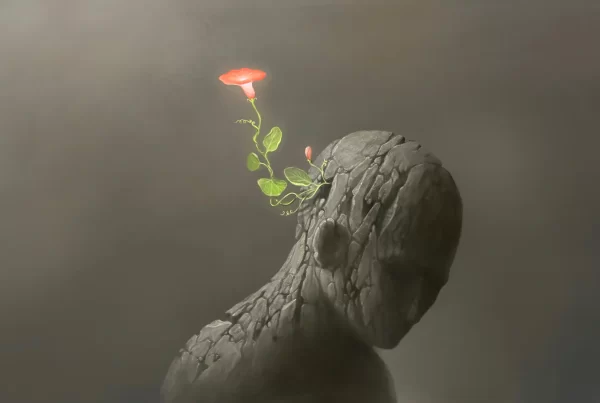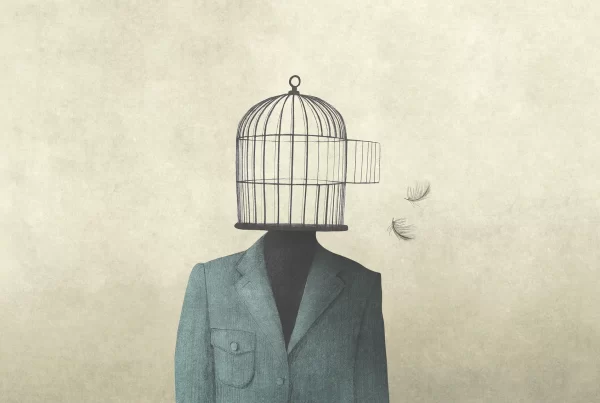I’ve often heard spiritual teachers use the phrase “it’s all love and light” which is subsequently echoed by their students in spiritual communities. It’s a beautiful message of positivity, unity, and potential enlightenment. I say potential because this phrase alone can be problematic if we have not spent time in bed with darkness.
“It’s all love and light” can dismiss and supress the negative, darker, and more difficult side of the ego: the shadow, creating an internal split in the psyche. This can lead to dissociation and a fractured sense of self, avoiding the dual nature of existence (light and dark) and the need for healthy integration of both parts.
Let’s talk about the darkness. We all have a shadow, which Jung described as the unconscious aspect of the personality consisting of qualities, desires, and impulses that an individual denies, represses, or rejects as incompatible with their conscious self-image or deemed unacceptable by societal standards. Exploring and integrating this darker and often disowned part of the psyche can lead to greater self-awareness, self-acceptance, and wholeness.
“It’s all love and light” can lead to toxic positivity by promoting an overly optimistic worldview, dismissing, and invalidating pain and leading to the discounting of the external dark totalitarian forces at play. The term discount in the psychological sense means relegating information to the background, rejecting, or ignoring internal or external realities. It can be catastrophic for humankind at this level.
Let’s talk about the darkness. The shadow exists not only in individual psyches but also in the collective unconscious, representing the suppressed, denied, or repressed aspects of society. Parasitic world leaders and global corporations serve as prime examples of this collective shadow, embodying the darker impulses and tendencies of humanity, thriving on greed, exploitation, control, perpetuating cycles of oppression, inequality, and environmental destruction. From a shamanic perspective this is known as the “Wetiko mind virus” which originates from indigenous cultures, particularly among Native American tribes. This has been popularised by my close friend and mentor Paul Levy who is a well know writer on the subject. Paul explains that the Wetiko mind virus is a collective psychosis or spiritual illness. Those affected by the Wetiko virus are believed to be driven by a compulsive and insatiable desire for power, control, and consumption, often at the expense of others and the natural world.
“It’s all love and light” can lead to what some call “spiritual bypassing”, where individuals use spiritual beliefs or practices to avoid dealing with underlying psychological or emotional issues, masking unresolved trauma issues and wounds.
Let’s talk about the darkness. When individuals engage in spiritual bypassing and avoid confronting their unresolved trauma, they inadvertently deepen their entanglement with the darker aspects of their psyche. By turning away from the shadow aspects of their being, they allow these unresolved issues to fester and grow in the depths of their unconscious. This avoidance creates a breeding ground for the shadow to exert its influence in subtle and insidious ways, manifesting as destructive behaviours, unhealthy relationship patterns, and psychosomatic symptoms. The unacknowledged shadow can also surface in the form of projection onto others, leading to relational breakdown and perpetuating trauma within families, passing it down generation to generation.
Therefore, while promoting love and light is not inherently wrong, it becomes problematic when it is used to deny or avoid the darker aspects of the collective sickness we see in society and the darkness within the human psyche. A more balanced and holistic approach to spirituality acknowledges the interplay of light and shadow, embracing both aspects as integral parts of the journey toward wholeness and authenticity. As my mentor Paul so eloquently puts it “there is medicine in the darkness.”










